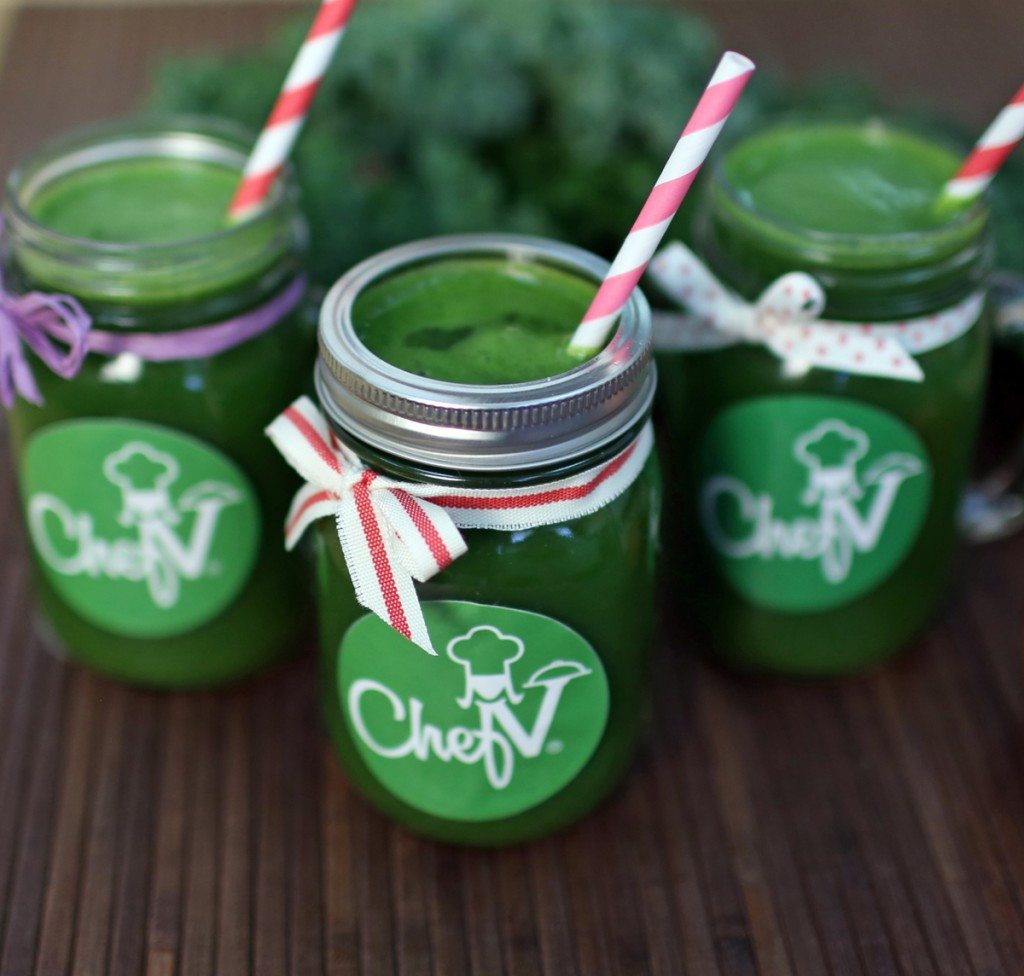
Pasteurization is the process of heating a product or liquid in order to kill bacteria and pathogens. In most instances, people associate pasteurization with dairy products. Specifically milk. However, the technique is actually applied to many common foods and beverages including—you guessed it—juice.
Today, we’d like to discuss pasteurization more generally as well as delve into the benefits of unpasteurized products—just like Chef V’s green juice.
What is Pasteurization?
As mentioned, pasteurization is the process of heating up a product or liquid to kill any bacteria and pathogens that may be in it. Aside from killing unwanted pathogens, pasteurization also helps preserve food and extend its shelf life.
The exact temperature products are heated to, as well as the amount of time they’re kept at the specified temperature, changes from product to product.
Meanwhile, how long a product’s shelf life increases from pasteurization is dependent on other variables like its acidity, and the amount of sodium and sugar in it.
Why Unpasteurized Juice?
There are two reasons why unpasteurized juice is better than pasteurized: nutrition and flavor.

Nutrition
During the pasteurization process, the same heat used to kill potentially harmful bacterias also kills and/or degrades healthy bacterias and micronutrients.
For example, pasteurization is known to kill probiotics—a healthy bacteria notably found in some types of yogurt. While probiotics are a bacteria, they are well known for aiding the digestive system. Specifically, they improve gut health as well as prevent bloating and diarrhea.
In juice, vitamin C and thiamine are both micronutrients known to degrade during the pasteurization process.
In most instances, healthy bacterias and micronutrients can be re-added to a product after pasteurization. However, there is significant evidence to suggest that literally killing healthy bacterias and micronutrients in an organic food or juice only to artificially re-add those same ingredients back in is, well, less than ideal.
Flavor
Have you ever drunk freshly squeezed orange juice at breakfast? If so, you know it is leagues ahead of pre-squeezed or—heaven forbid—concentrate.
One of the reasons freshly squeezed juice is more flavorful than pre-squeezed is because it is unpasteurized.
Aside from its nutritional value, healthy bacterias (like probiotics) greatly influence a product’s flavor profile.
Take Roquefort cheese for example. The blue veins growing throughout Roquefort are actually a well-known bacteria called Pénicillium roqueforti. This strain of bacteria is what gives Roquefort its intense, savoury flavor profile. In fact, French law strictly dictates that Roquefort cheese can never be pasteurized as the process will compromise the flavor. Cheese producers who pasteurize this style of blue cheese can’t legally market it as Roquefort.
Juice is no different. By eliminating all the bacterias in an organic cup of green juice, you are also harming its flavor. In our opinion, pasteurized juice will never taste as fresh and zesty as its unpasteurized counterpart.

Who Shouldn’t Drink Unpasteurized Juice?
The nutrition and digestive properties of unpasteurized juice makes it very popular for those undergoing detox cleanses. However, it’s not for everyone.
Children, the elderly, or those with immune disorders may be advised to avoid unpasteurized juice. Pregnant women are also usually advised to avoid unpasteurized products.
Safe Use of Pasteurized Juice
Regardless of all the benefits of unpasteurized juice, there’s no getting around the fact that it will spoil faster than supermarket juices. Thankfully, Chef V’s regular production and delivery schedule ensures you’re only drinking the freshest, most nutritious product possible.
Jump over to our Green Drink Plan page to learn more about our blended green juices.
